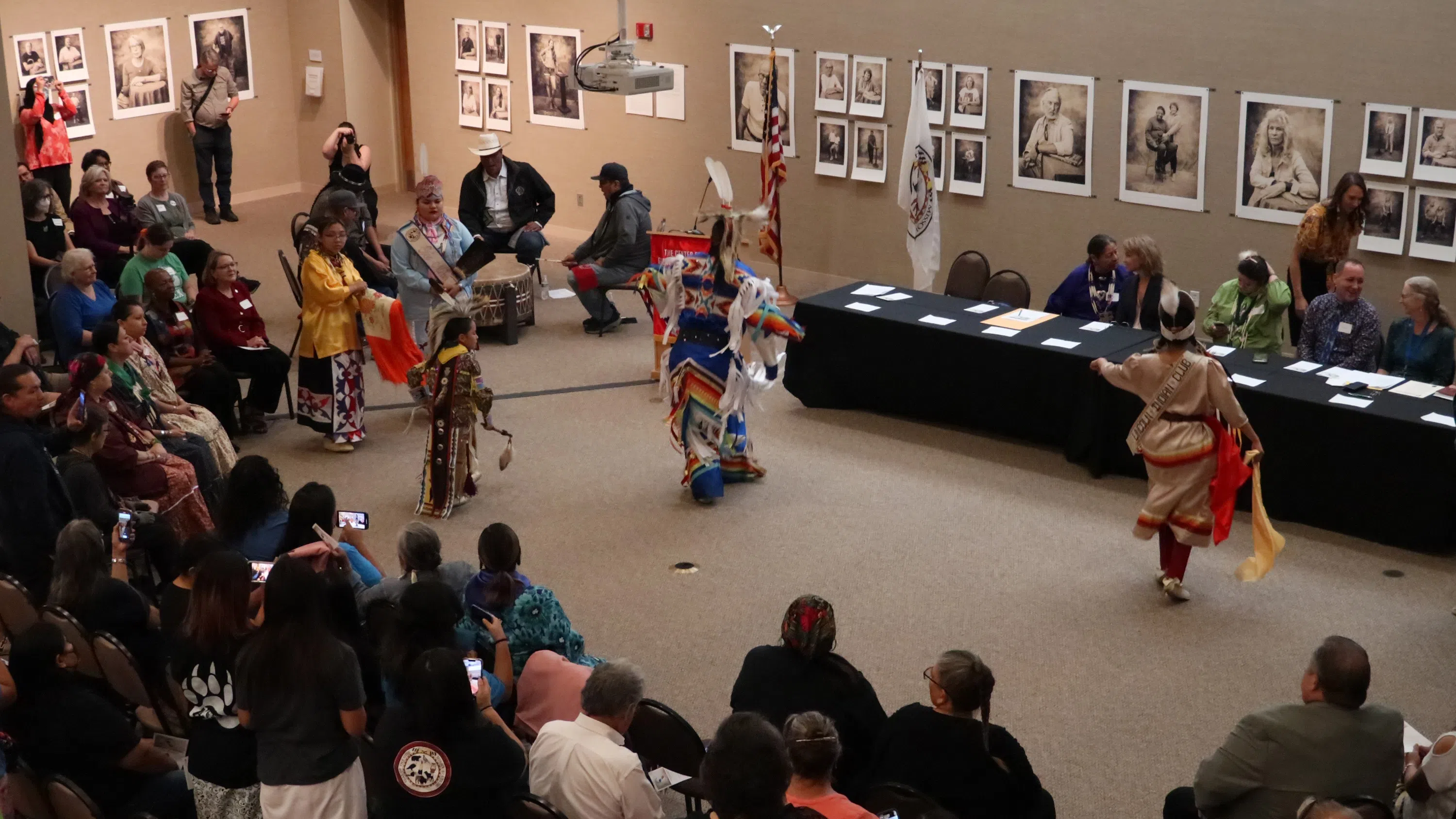The Lincoln City Council unanimously voted Monday to declare September 21st as Otoe-Missouria Day, honoring the indigenous tribe that lived in the area now known as Lincoln before the arrival of European settlers.
Council Chair Sändra Washington introduced the resolution after a few years of the city issuing a singular proclamation designating Sept. 21 as Otoe-Missouria Day.
“After a number of years of asking for the proclamation, I was asked if this could be a more permanent recognition of the Otoe-Missouria tribes influence, stewardship, and historical association with this area. And I said, ‘It seems like a good idea,'” said Washington. “In as much as Lincoln has set itself up to be a place that is welcoming of immigrants and refugees, we are also welcoming of people who were here first.”
Lincoln residents Kevin Abourezk and Margaret Jacobs spoke Monday before the council, providing some historical context of the Otoe-Missouria tribes in Lincoln. As detailed by University of Nebraska-Lincoln Geography Professor David Wishart in his book “An Unspeakable Sadness: The Dispossession of the Nebraska Indians,” the people who used to call Lincoln ‘home’ were the Omaha, Kansas, Pawnee and Otoe-Missouria indigenous people.
None of these tribes currently hold a headquarters in Lincoln. The Otoe-Missouria now primarily resides in the state of Oklahoma.
“We would like to welcome them home. We would like to allow them to reconnect with their past, reconnect with this place that their ancestors once called home,” Abourezk told the council. “It’s, I feel, right to welcome home the people whose sacrifices allowed us to be here, allowed us to live here.”
Historically, the Otoe-Missouria Tribe signed two treaties with the U.S. government. The first was on September 21, 1833, and the second on March 15, 1854. These treaties resulted in the cession of the lands that would eventually become the city of Lincoln and the University of Nebraska. These cessions did not happen willingly, as they occurred under duress, reflecting a challenging period in Indigenous history.
Jacobs, a non-native person, said this recognition signifies the Lincoln community “facing up to our history” and “taking responsibility” for the way the city was built on the land of the Otoe-Missouria nation.
“I’m proud that my city is not just issuing a land acknowledgement, but is creating and supporting opportunities for our city residents to actually connect with some of the descendants of the indigenous people on whose land we occupy, and to not only connect, but to build new relationships and to heal from the past,” Jacobs told the council. “(The Otoe-Missouria people) have a lot to teach us about how to persist through hard times, how to face up and to honor our histories, how to rebuild and restore one’s culture and society, how to be good stewards to our precious lands and waters, and how to be good relatives.”
Christina Faw Faw Goodson, a member of the Otoe-Missouria tribe and Native language specialist with the National Indian Education Association, intended to address the council Monday, but was stalled due to a flat tire. Jabobs shared this message from Goodson with the council in lieu of her presence.
“I am honored and grateful to the council for considering this resolution. We, as Otoe-Missouria people, have worked for many years to have our voices and history reflected in mainstream narratives. This resolution to provide for an annual proclamation is a step towards the further growth of the relationship between the Otoe-Missouria tribe and the city of Lincoln. A future which honors both of our stories,” said Goodson.
While this recognition received gratitude from members of the Otoe-Missouria tribe, one Lincoln resident told the council Monday this designation rings “hallow.”
Avid public-commenter Roy Helm reminded the council, back in 2022, the city filed a lawsuit aiming to keep a housing development project in West Lincoln moving forward, despite concerns from local Native American groups such as the Otoe-Missouria tribe.
“We had an opportunity there to offer a little more reconciliation, to offer a sacrifice from this group of settlers,” said Helm. “While I appreciate this resolution, I don’t think it goes far enough into the injustices that were served.”
Helm drew a comparison to the mass causalities experienced by the Palestinian people in the territory of Gaza and the West Bank.
“All we need do is look today at that situation… and reflect upon that and transpose that to 150 years ago, and the genocide that occurred here. It’s heart wrenching, and I don’t think we’ve gone far enough to work towards reconciliation,” he continued, before ultimately saying this is “a very positive step.”
“The more we can do to reconcile with (our history), address that, acknowledge that, and try to move forward in harmony, the better we’ll be,” Helm concluded, asking the council to support this resolution.
The council voted 7-0 to approve the motion.







